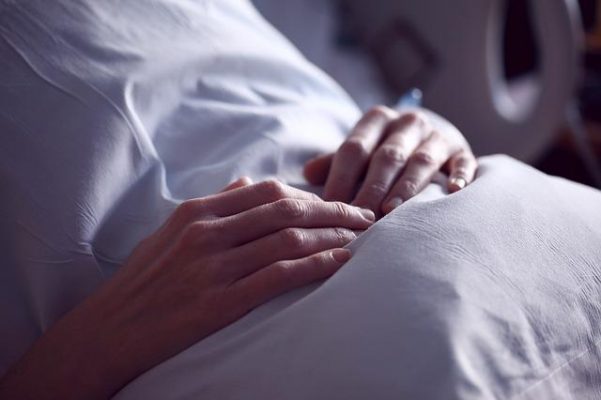Safety Hazards Cause Recall of Thousands of Units of Bed Rails
 Portable bed rails are installed on the sides of beds used for the elderly or those with medical conditions that increase the likelihood of falls from the bed. Unfortunately, bed rails can also present dangers. In April, the Consumer Product Safety Commission recalled thousands of units of bed rails over the last several months. Unfortunately, bed rails can present a safety hazard such that a consumer is entrapped and in danger of asphyxia and brain injuries or even death. The seasoned product liability lawyers of Moll Law Group may be able to help you if you or a loved one was injured as the result of using a bed rail.
Portable bed rails are installed on the sides of beds used for the elderly or those with medical conditions that increase the likelihood of falls from the bed. Unfortunately, bed rails can also present dangers. In April, the Consumer Product Safety Commission recalled thousands of units of bed rails over the last several months. Unfortunately, bed rails can present a safety hazard such that a consumer is entrapped and in danger of asphyxia and brain injuries or even death. The seasoned product liability lawyers of Moll Law Group may be able to help you if you or a loved one was injured as the result of using a bed rail.
Call Moll Law Group If You Were Injured or Lost A Loved One Due to a Defective Bed Rail
CPSC has issued warnings in connection with bed rails made between 1992 and 2021 by Mobility Transfer Systems Inc. It also issued warnings to stop using bed rails made by Metal Tubing USA Inc. in 2021-2022. The bed rails that were the subject of warnings were sold several places online including Amazon.com, Walmart.com, Alimed.com, VitalityMedical.com, MTS MedicalSupply.com, and eBay.
It has been reported that at least three people in different states died after entrapment in connection with the recalled models of the bed rails. These included a 78-year-old woman in an assisted living facility in, an 85-year-old man in a nursing home, and a 90-year-old disabled woman. The bed rails are made of white or chrome metal tubing, ad are labeled on the grip handle with “Mobility Transfer Systems.” The models include Freedom Grip, Freedom Grip Plus, Freedom Grip Travel, Reversible Slant Rail, Transfer Handle, Easy Adjustable, 30-inch Security Bed Rail, both single and double sided.
The manufacturer is no longer in business, so it did not agree to recall. Nor is there a remedy for consumers offered though this question is being evaluated for the future. However, consumers have been asked by the agency to stop using the bed rails, which can be bought online without a doctor’s prescription or suggestion, and to throw them away since they are linked to hundreds of injuries and deaths. It’s been estimated that 196,848 people were injured by adult portable rails between 2003 – 2019. The FDA received reports of 7 deaths involving portable rails between 2005-2013, but it also received 901 incidents of patient entrapment, including 531 deaths, in hospital beds between 1985 – 2013.
Bed rails are sometimes defectively designed. They can present particular hazards to the disabled and those with altered mental states like dementia. Design defects are flaws present in every unit. However, in some instances, a bed rail is defective in terms of its manufacturing or marketing. Our lawyers may be able to pursue a claim for injuries or death resulting from defective bed rails under theories of strict liability, breach of contract, breach of warranty, or negligence, depending on the state where the litigation is pursued.
In 2013, the CPSC was asked to address the dangers of adult portable bed rails in a petition. CPSC voted to defer action on the petition in 2014-2015. The independent standards organization ASTM worked to develop a voluntary standard for adult bed rails and published them in 2017. The CPSC tested randomly selected models to figure out whether they met these guidelines. Unfortunately, they found that the standard adequately addressed the product’s known dangers but there was not much evidence of manufacturer compliance with the standard. CPSC found that 92% of the average 16 fatal incidents related to bed rails are the result of entrapment while using a bed rail. The staff has recommended the initial petition requiring a ban or standard be granted and the CPSC is working on a formal federal rule to address the danger.
Call the Product Liability Lawyers of Moll Group
If you or a loved one were harmed by a defective bed rail, you should call the seasoned Chicago-based product liability lawyers of Moll Law Group. We represent plaintiffs and their families around the country. Please complete our online form or give us a call at 312.462.1700.
 Illinois Injury and Mass Tort Lawyer Blog
Illinois Injury and Mass Tort Lawyer Blog

